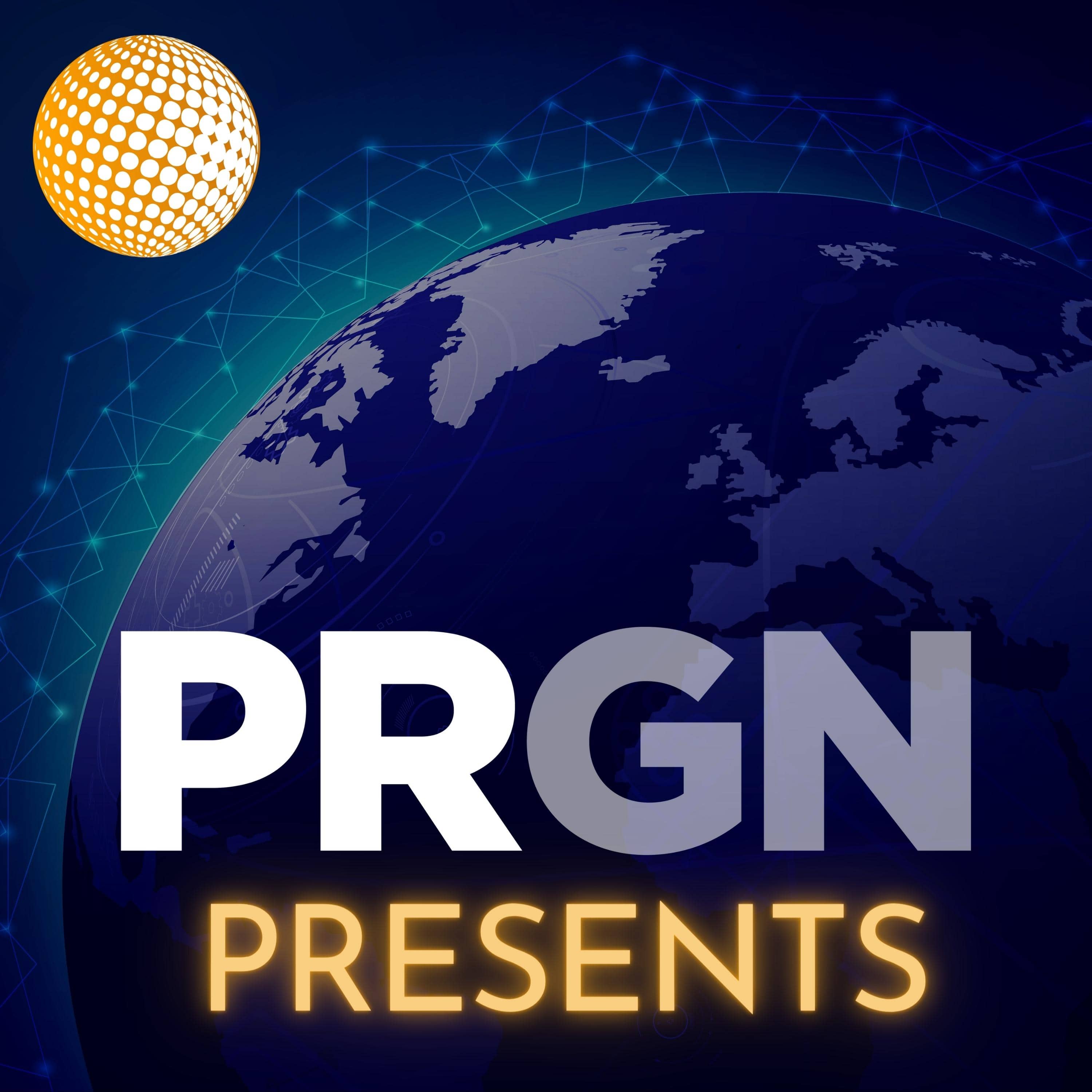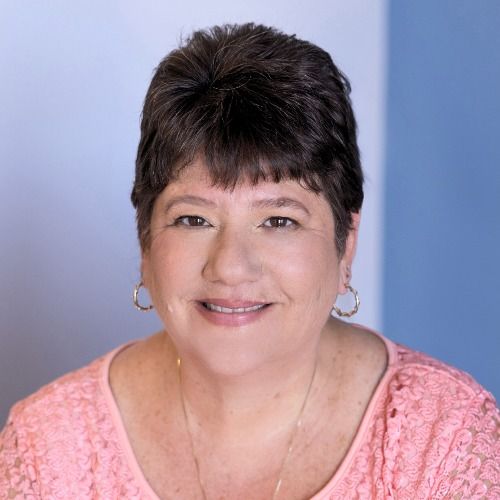S1 E1: Creative Compensation with Alison King
It takes more than just a good salary to attract employees these days. Whether you are working in an office or have a remote workplace, creative office culture and maintaining staff morale are still critically important. Business owners are getting more creative when it comes to compensation and benefits.
About the Guest
Alison King is a trusted PR pro, committed mentor and supportive leader. She is the president of Media Profile, one of Canada’s largest and most respected independent communications agencies. Over a storied 30-year career she has earned the respect and trust of the CEOs of Canada’s largest brands and the editors of its busiest newsrooms. Her culture-centric management style has contributed to the agency’s enviable reputation and numerous awards for best places to work and best places to work managed by women. With a strong entrepreneurial spirit, she never stops learning or evolving the agency.
About the Host
Abbie Fink is vice president/general manager of HMA Public Relations in Phoenix, Arizona and a founding member of PRGN. Her marketing communications background includes skills in media relations, digital communications, social media strategies, special event management, crisis communications, community relations, issues management, and marketing promotions for both the private and public sectors, including such industries as healthcare, financial services, professional services, government affairs and tribal affairs, as well as not-for-profit organizations.
PRGN Presents is brought to you by Public Relations Global Network, the world’s local public relations agency. Our co-host and executive producer is Adrian McIntyre with Speed of Story, a B2B communications firm in Phoenix.
Follow the Podcast
If you enjoyed this episode, please follow PRGN Presents in Apple Podcasts, Spotify, Google Podcasts, or any other podcast app. We publish new episodes every other Thursday. To have them delivered automatically and free of charge, just choose your preferred podcast player from this list, open the app, and click the button to “Follow” or “Subscribe” to the show: https://prgnpodcast.com/listen
Need to hire a PR firm?
Leading a business effectively in today's fast-paced world requires expert guidance and a strong communications strategy. No matter where you do business, PRGN has a member agency in your region with the deep industry expertise, international experience, and local market knowledge you need to connect with your target audience and achieve your goals. Find a PR firm near you »
Transcript
Welcome to the Public Relations Global Network's 30th anniversary podcast. I'm Adrian McIntyre ...
Abbie Fink:And I'm Abbie Fink, vice president/general manager of HMA Public Relations in Phoenix, Arizona and a founding member of PRGN. With public relations leaders embedded into the fabric of the communities we service, clients hire our agencies for the local knowledge, expertise, and connections in market spanning six continents across the world.
Adrian McIntyre:Our guests on this "limited edition" podcast series are all members of the Public Relations Global Network. They'll discuss such topics as workplace culture, creative compensation and succession planning, the importance of sustainability and Environmental, Social, and Governance programs, crisis communications, and outside-of-the-box thinking for growing your business.
Abbie Fink:For more information about PRGN and our members, please visit prgn.com. And now, let's meet our guest for this episode.
Alison King:My name is Alison King. I'm the President of Media Profile based in Toronto.
Abbie Fink:Alison, you and I have talked a lot about the workplace these days and how as employers, we have to get a whole lot more creative, when it comes to our compensation packages for our teams. It's no longer just a paycheck. We really have to get thinking outside of the box. And I'm just curious. Well, Canada has a lot of different guidelines as well from an employer-employee perspective. But what are some of the things that you're seeing and hearing from your team? And what are you putting together for everyone now as you're looking at this new workplace that we're all entered into?
Alison King:Well, I think financial compensation remains and always will be really important. There's no question that we're all in a hyper-competitive market when it comes to attracting talent and attracting strong talent. So we're finding it's not just about money anymore. And I think the pandemic has also kind of really highlighted the stress and the intrusion that work can have on your mental health, on your personal life, on all of that. So, we're kind of taking a holistic look at compensation and really focusing on the work-life balance and how can we help people outside of work. So one of the things that we recently did that I'm really proud of is, we launched something called Media Profile Work Away. And what we're doing is, we're giving anybody who has worked at the agency for a minimum of six months the opportunity to go and work anywhere they want in the world. They can do that for a month. They can tack on two weeks vacation to that. They can also do it for two weeks and tack on two weeks vacation. And we're going to help them do it and encourage them to do it by giving them $3,000 towards the experience. That money has to be related to travel, whether it's an Airbnb, hotels, a flight. But the uptake on it has been absolutely incredible.
Abbie Fink:And you've had a lot of people take advantage of that?
Alison King:Yeah, I think we've had about a dozen people, so far. And I think one of the things that's really great about it is the anticipation of going as well and the planning of it. So, we've had people go to Brazil, we've had people go to Miami, we've had people go to Costa Rica, Nicaragua. We've got three young women in the office right now that are going to France and they're pooling their $3,000. So, they're going to have $9,000 towards an Airbnb in France and they're taking a month and adding on two weeks vacation. I've never introduced anything at the agency that has been such a jaw dropper.
Abbie Fink:And how are you managing them being away for that long? What is the shifting in the workplace? Or for those that are staying, not on the trip, what's happening with the workload?
Alison King:I think fundamentally at the core of this is trust. I made that really clear from the beginning. When you're working away, you're working. You can't let your teams down, you can't let your clients down. You have to work within the Toronto time zone, so that is creating some issues for some folks. But I actually have one guy who's from India and he's going to go home and he is going to work for a month and he's going to work overnight. So he's working it out. And then they can't let their team members down, right? And so now with technology, I mean, we've proven for two years, that we can work from home or work from wherever. So as long as they're doing the work, deliverables are taking place, clients aren't being let down, then I'm willing to just trust them. And I'm sure I'll hear it if it's not working out.
Abbie Fink:When you are chatting with your clients, I'm sure this is coming up as well in terms of what struggles they're finding. I think it's universal across any industry right now, struggling to find good people, good people that will continue to work and can adjust to, again, what the new workplace looks like. What are you hearing from your business colleagues and such in terms of, when you spring an idea like this, that's a lot to live up to. But what other kinds of things are you hearing out there from your colleagues or your clients about the challenges in the workplace, when it comes to the creative compensation, as we're referring to it?
Alison King:I think there are two issues. There's finding good people, because that's really challenging right now. And it's keeping the good people as well. It's interesting, because we've pitched a few big clients recently. And one of them -- a very big client -- his first question, the head of communications, was because he saw we got a lot of media coverage around this benefit, and he said, "So tell me about this work away benefit. How does that work? That's a really smart thing to do. And we're trying to think about how we can do things like that for our employees." But a much, much bigger company with kind of different jobs, so it's probably harder for them to do. But I think everyone has to get a little bit creative. I think everyone has to be flexible. I think the flexibility piece is creating some tension between employees and employers, because employees want the flexibility. And I think some employers still have the mindset, "Well if I can't see them, they're probably not working as hard." And I think we all have to readjust to the new reality, which is hybrid is here to stay, whatever that looks like. And if you want great talent and you want your talent to stay, then you've got to have that flexibility and offer it.
Abbie Fink:I'm of the same mindset. I think trust is a huge component. And I know when we went work-from-home, right as the pandemic hit, our plan was to return to an office. That never happened. We are now, I refer to it as a work-from-anywhere environment, with similar guidelines in terms of, you're working our hours, not wherever you happen to be. What we're seeing in the market is, I think, a little bit of a shift as well to, it's not traditional people that we're also looking at hiring. We're not necessarily, as PR practitioners, we're not necessarily having to hire PR practitioners. We're looking at other industries or other professionals that could adjust and adapt to our environment that might bring something else to the table. A good writer is a good writer, whether or not they were trained as a public relations practitioner or not. And so we're hearing a little bit more about that as well, that maybe we need to think differently about who the employee is as well. And so, I think the onus is on us as the employer to think out of the box a little bit. And as you said, trust in our own process, in our way of bringing people in and how we're managing, what that looks like. I read an interesting article the other day by our colleague Steve McKee, from McKee Wallwork in New Mexico. And he was talking about this concept of onboarding, and how it has changed and needs to continue to change, as we have this more remote and hybrid environment. We can't bring in our teams and have them engage with each other. And can you truly onboard in a virtual environment the same way? And we need to think differently about how we're bringing our people into the workplace. And give them the tools and the support and the understanding that they need to make that lasting impression, and that they stay with you a little bit longer.
Alison King:Agreed, agreed. I think one of the challenges around all remote all the time is mentorship and figuring that piece out. Because for people who are beginning their careers, it's sometimes more intimidating and challenging just to kind of book a meeting or a call or a Teams meeting or a Zoom meeting with a colleague to ask a question that they might feel dumb asking. Whereas in the office, you can swivel your chair around and have that conversation. So I think training, mentorship, all of that, requires a bit of a rethink, and a lot of consistency, a lot of openness, a lot of flexibility, again.
Abbie Fink:Well I've found that I actually have much more intentional kinds of conversations with my team than I did before, because if I was doing what I needed to be doing, I was out and about and meeting and never really in the office. I used to call it the drive by management. Here's all your stuff. See you later. And now because I don't see them every day, I have to be much more intentional. And I find that within the team as well, there's a little bit more actual conversation, not just, "Can you get this done?" There's the weekly check-in on what we watched on Netflix and what did we do over the weekend, has elevated the kinds of conversations that we're having. And I think for us as, relatively small agency, that we've got to spend a little bit more time in some of that more culture creation, as well as, what does the compensation look like. And be fair and competitive, but create some other opportunities for the team to do some things. What else is happening in the Canadian market these days? Is it strong? Is it good? You're feeling things are great?
Alison King:I'm feeling really good. It's very strong. Our agency is exceptionally busy right now. All of our clients are doing lots of really exciting things. So yeah, it's the strongest I've seen kind of this world, in probably seven or eight years. And the other thing that's really interesting is a lot of clients are still really interested in media relations and public relations. And so, even though we've kind of moved into kind of obviously, own content and social media and all things digital, there's still a lot of clients that want to get those hits in newspapers or see something on television. So, traditional PR is very much alive and well in Canada.
Abbie Fink:I'm happy to hear that. I think wherever we're going to be, the tried-and-true is going to end up, I think, on top. And so I'm encouraged as well, as what the marketplace is looking like. And we're seeing clients that went away for a little bit, coming back. We seen budgets returning to pre-pandemic era and it's quite encouraging as well. Well, I want to thank you for joining us on our special PRGN podcast in celebration of our 30th anniversary. Thanks for coming on with us.
Alison King:Thank you, Abbie. This was great.
Adrian McIntyre:Thanks for listening to this episode of the Public Relations Global Network's 30th anniversary "limited edition" podcast series.
Abbie Fink:You can find all the episodes now in your favorite podcast app. Episodes are also available on our website – along with more information about PRGN and our members – at prgn.com.





